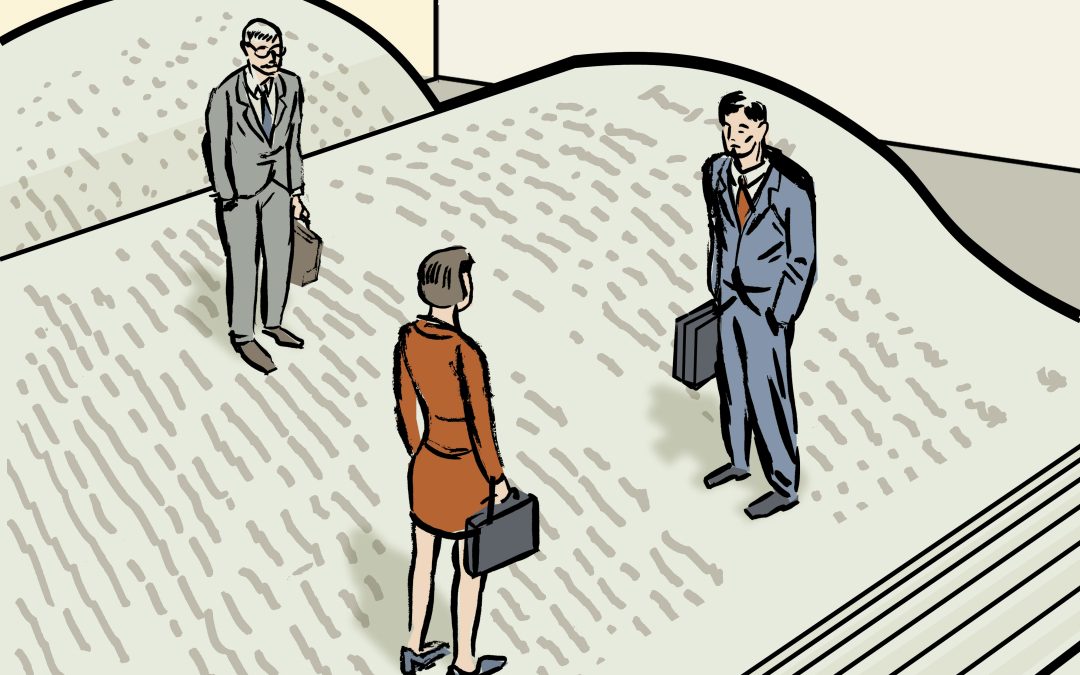
May 10, 2024 | Blog, Cross-Organizational Information Sharing, Knowledge Advantage, Knowledge Sharing Culture, Strategy
When we talk about an origin story, we naturally think of characters in great movies or captivating novels. We rarely think about businesses or organizations. Origin stories, when skillfully woven into an organization’s strategic communications in the defense sector, can pack an effective punch with key audiences.
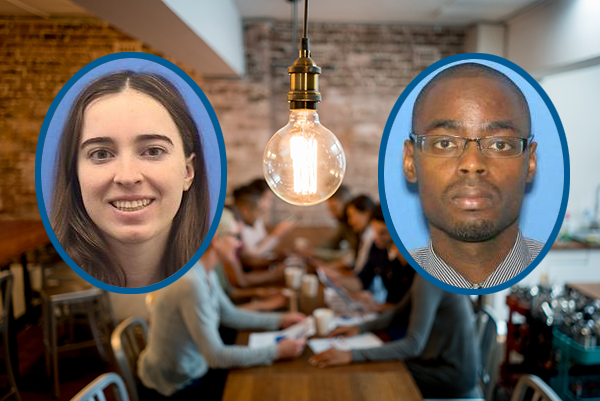
Nov 13, 2022 | Blog, Cross-Organizational Information Sharing, Knowledge Sharing Culture
In this episode, Leah Balkin, Systems Engineer, discusses her efforts to promote mentorship at MITRE.
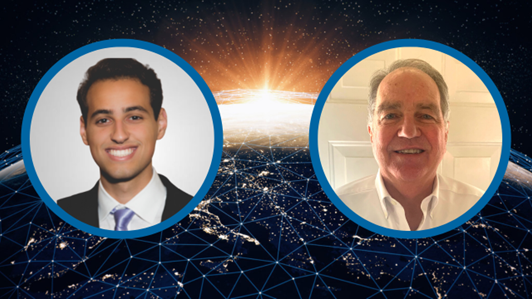
May 31, 2022 | Blog, Learning Organization, Strategy
In this episode of the MITRE Knowledge Driven Podcast, Science and Technology Advisor David D. Perkins, discusses MITRE’s role on the work of the Great Power Competition initiative. Join us, as we take a dive into the inner workings of the data-driven processes that influence government actions regarding strategic competition and national resilience.

Jul 6, 2020 | Blog, Learning Organization
On the evening of April 13, 1970, there was a loud “BAM!”, then “Houston, we’ve had a problem.”
Apollo 13 had “lost” the moon because an oxygen tank explosion that wasn’t predicted caused a series of systems failures in propulsion, electrical power, and life support, and the world focused on how three isolated men over 200,000 miles from Earth would get safely home.
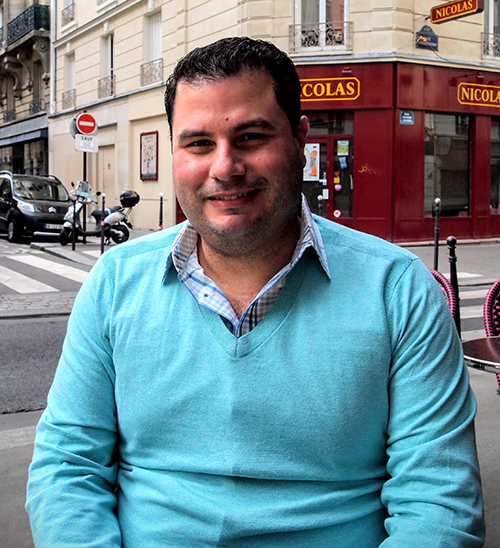
May 8, 2020 | Blog, Cross-Organizational Information Sharing
Despite our modern world, many systems aren’t built with uncertainty in mind. Alas, these unexpected events may become the new normal. Fortunately, Imanuel has been leading the charge to re-examine how we design and implement systems with new approaches that make them more resilient to the unexpected. Listen in as we explore how his work is helping the world prepare for the next natural disaster or global pandemic.

Jan 27, 2020 | Blog, Learning Organization
A recent discussion with colleagues on intriguing approaches and paths to innovation triggered my systems thinking habits – to explore and understand challenges systemically. What I ended up discovering were multiple dimensions of innovation, particularly for collaborative innovation.

Dec 16, 2019 | Blog, Knowledge Advantage
Delve into the history and meaning of risk, and you may be surprised to find that the word risk has an uncertain etymology. Depending on the domain, definitions of risk may be based on probability, danger, uncertainty, or chance.
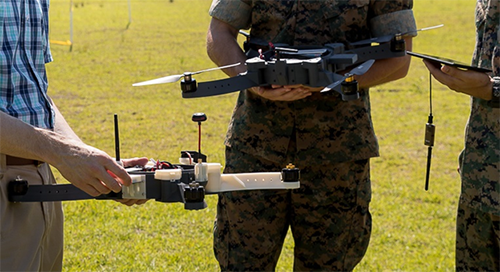
Aug 7, 2019 | Blog, Learning Organization
Andy Chapman’s recent lecture, “Advanced Manufacturing: Enabling Warfighter Innovation at the Tactical Edge,” tells the story of how his team worked with the Marine Corps to develop advanced manufacturing capabilities as part of a project to adopt Small Unmanned Aerial Systems (sUAS) into Marine operations. The MITRE team’s problem-solving approach with sUAS shows that by closely examining the context of the initial goal to identify the root of the problem, it is possible to realize a more complete scope of logistical, economic, and ethical results.
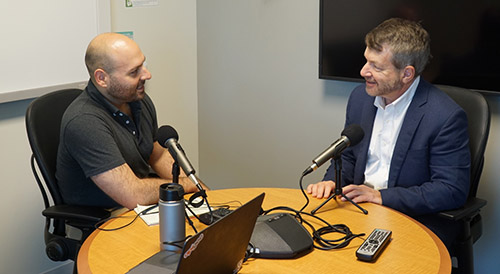
Jul 15, 2019 | Blog, Machine Learning, Artificial Intelligence, and Data Science, Uncategorized
Dr. Philip Barry is the Technical Director for Modeling, Simulation, Experiments, & Analysis here at MITRE. When he’s not leading simulations work, he is teaching Risk Management at George Mason. Ever focused on bringing new tools and methodologies into the classroom, Dr. Barry partnered with George Mason and Joe Garner and Ali Zaidi from MITRE’s Generation AI Nexus (Gen AI) team, to create a first-of-its-kind lesson blending risk management with artificial intelligence (AI).
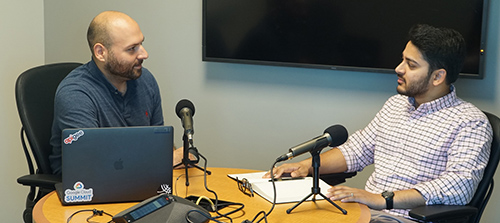
Jun 19, 2019 | Blog, Collaboration, Partnerships and Social Media, Machine Learning, Artificial Intelligence, and Data Science, Uncategorized
Ali Zaidi is a MITRE data scientist tackling an interesting challenge for MITRE as part of his work for Generation AI Nexus. As the fields of machine learning and data science have grown, the need for machine learning education has become a necessity of many fields few would associate with computer science.

Mar 22, 2019 | Blog, Intranets, Business Process, and Knowledge Operations
Have you experienced a slow sinking sensation when it comes to keeping your IT systems current, operational, and relevant? Do you feel that you are being asked to do more and more with less and less?
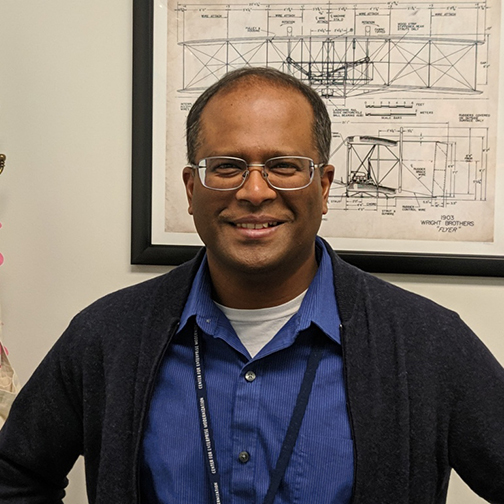
Feb 6, 2019 | Blog, Cross-Organizational Information Sharing, Learning Organization
Welcome to the first installment of the Knowledge-Driven Podcast. In this new series, Software Systems Engineer Cameron Boozarjomehri interviews technical leaders at MITRE who have made knowledge sharing and collaboration an integral part of their practice.
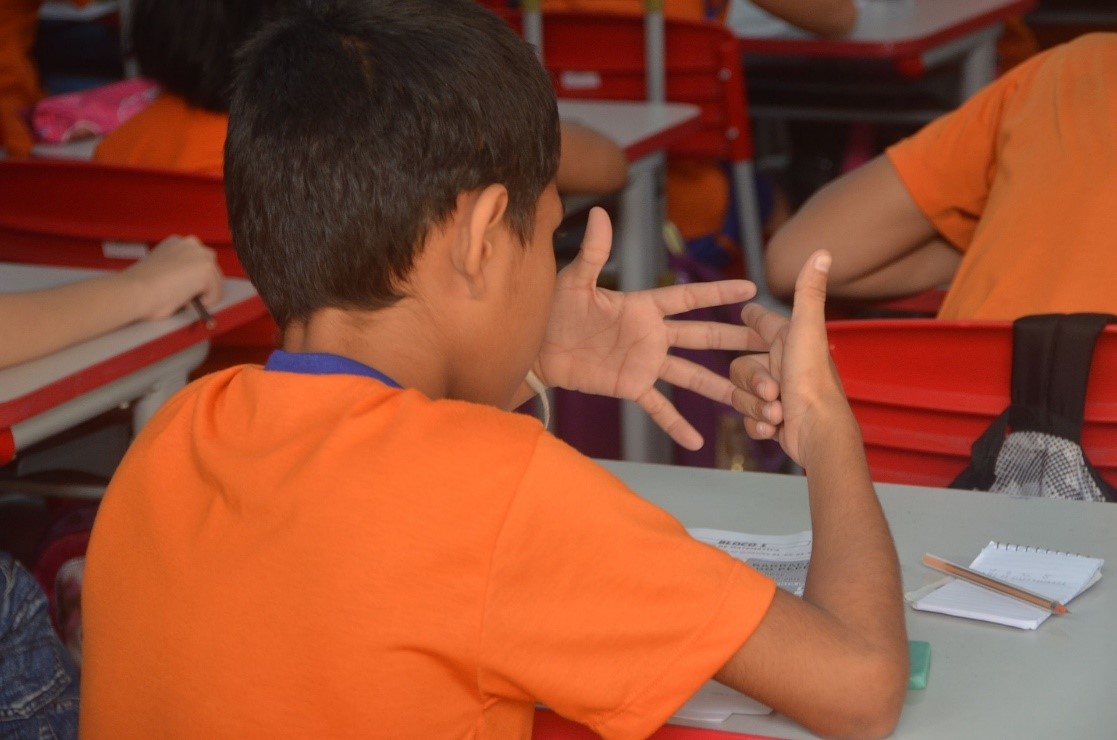
Nov 15, 2017 | Blog, Knowledge Advantage, Learning Organization
How much fun are you going to have with Howard Gershen’s second post on counting and reasoning? Innumerable amounts. Don’t expect any new rules of thumb, but he does offer some insights where it really counts.—Editor

Oct 16, 2017 | Blog, Knowledge Advantage, Machine Learning, Artificial Intelligence, and Data Science
It’s both less scary and more thrilling than you might think—and we’ve been living with nascent versions of machine learning for some time in the form of cognitive assistance tools. Spellcheck, for example, and the suggestions for replies that Gmail now displays are...
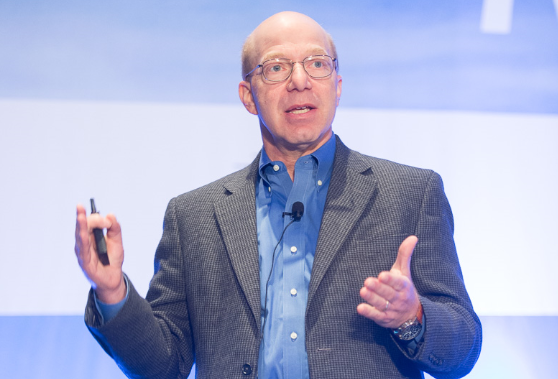
Aug 21, 2017 | Blog, Cross-Organizational Information Sharing
MITRE has supported the Federal Aviation Administration (FAA) mission for more than 50 years and has operated its federally funded research and development center—the Center for Advanced Aviation System Development (CAASD)—since 1990. CAASD provides the FAA with...
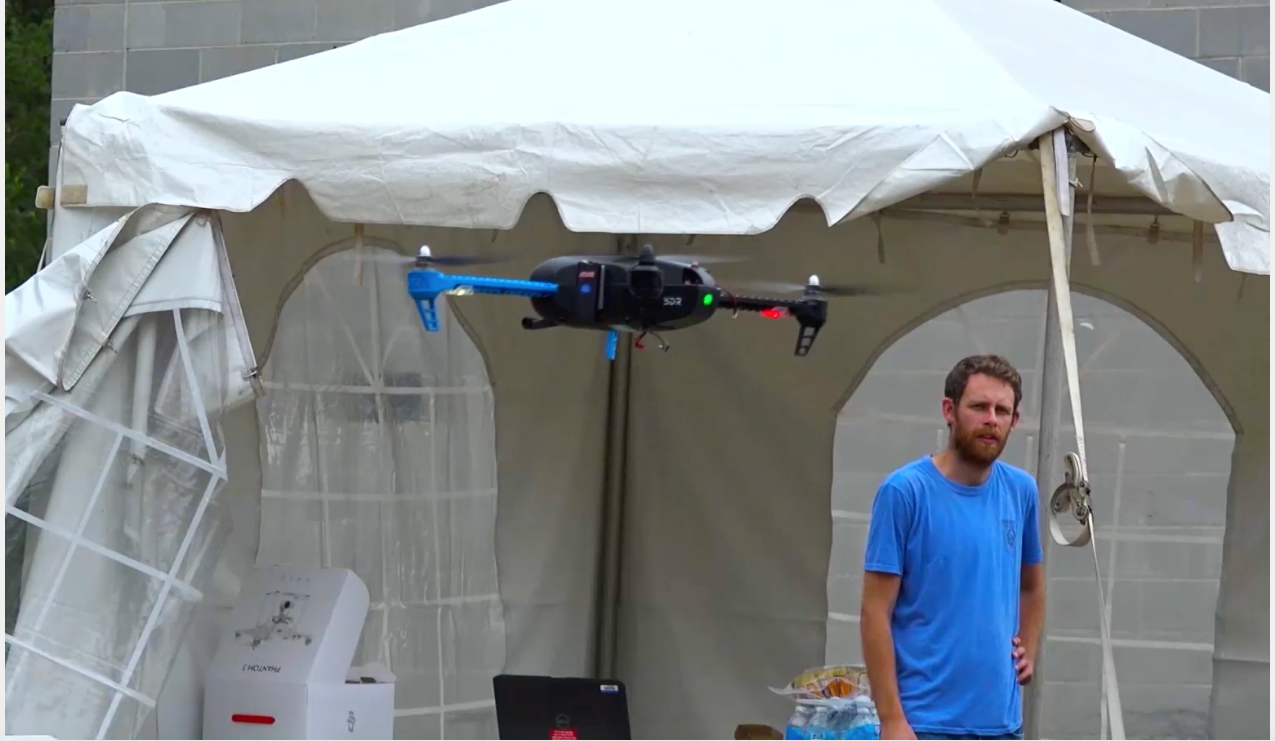
Aug 21, 2017 | Blog, Cross-Organizational Information Sharing, Knowledge Operations
It’s one thing to talk with your cubemate about a cool technology, another to collaborate companywide to build one. But it’s a whole different level of conversation when you try to talk to the world at large about a technical issue that affects every person on the...
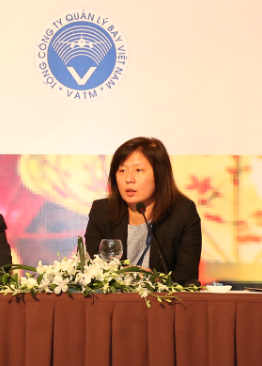
Aug 1, 2017 | Blog, Cross-Organizational Information Sharing
At the 2017 Civil Air Navigation Services Organisation Conference this past spring, MITRE’s Mimi Dobbs and Juliana Goh participated in a panel discussion on the remote tower concept and its impact on air traffic management. Dobbs and Goh are staff in MITRE’s Center...

Jul 20, 2017 | Blog, Cross-Organizational Information Sharing
MITRE works with the Federal Aviation Administration to enable the safest, most efficient aerospace system in the world and to meet the evolving needs of the nation’s airspace. We have supported the FAA’s mission for more than 50 years and have operated...
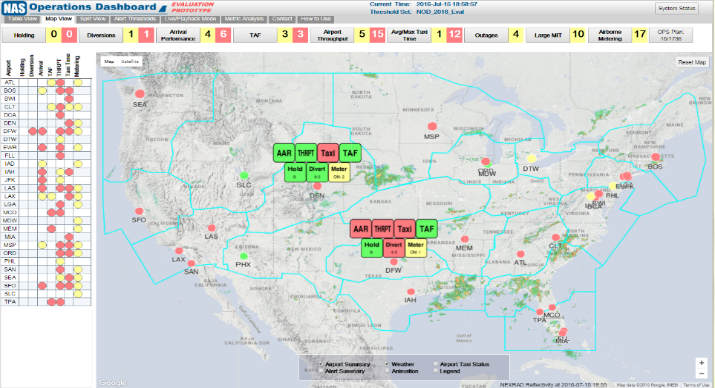
Jun 29, 2017 | Awards, Blog, Collaboration, Partnerships and Social Media, Cross-Organizational Information Sharing, Machine Learning, Artificial Intelligence, and Data Science
With the increasing demand for a diversity of new entrant operations come a variety of economic efficiency challenges. A MITRE team collaborating with the Federal Aviation Administration and industry experts is developing technology to make it easier for FAA’s air...

Apr 3, 2017 | Blog, Machine Learning, Artificial Intelligence, and Data Science
I was recently reminded of a quote by John Adams: “Facts are stubborn things; and whatever may be our wishes, our inclinations, or the dictates of our passions, they cannot alter the state of facts and evidence”.




















